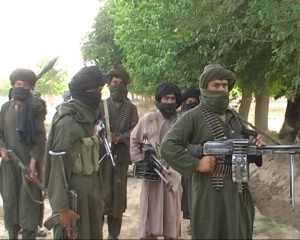Pakistan: National Action Plan Working
Last week, Punjab Chief Minister Muhammad Shahbaz Sharif announced that the implementation of Pakistan’s National Action Plan (NAP) has yielded positive results in the South Asian country’s fight against terrorism. “The Punjab government has taken immediate and timely measures with the cooperation of concerned institutions under the National Action Plan for the eradication of terrorism and necessary amendments have been made in the laws,” the Chief Minister said while addressing Punjab’s Provincial Apex Committee.
The National Action Plan
The National Action Plan is both a foreign policy doctrine and an antiterrorism program. Comprised of a 20 point agenda, details of the action plan include enforcing executions of convicted terrorists, speeding the trial process of criminals convicted of terrorism, and creating a special anti-terrorism force.
In addition, to the National Action Plan, a series of Provincial Apex committees were formed last January to coordinate security and implement the NAP. Comprised of both political and military leadership, the committees aim to consolidate intelligence and law enforcement agencies on every level to ensure full governmental participation.

Taliban’s One Step Too Far
While for years the Taliban, an Islamic extremist group, has plagued Pakistan with murders, kidnappings, and bombings--drawing strong condemnation from the Pakistani government--little government actions had been taken prior to the NAP. Government responses and policies were traditionally ambivalent to the killings. The lack of response stemmed from the government’s fear of offending the country’s high proportion of Muslims. But the Taliban finally took it a step too far late last year.
On December 16th, 2014, the Taliban gunned down faculty and students at an elite army high school in Peshawar as a retaliation against Pakistan’s hostile policies towards the Taliban. 133 of the 149 victims were children.
“This horrendous attack has shaken the nation...the terrorists struck the future of this country when they murdered those children,” said Prime Minister Nawaz Sharif, adding, “A strong action is needed to root out the menace of extremism from society.”
The murders sparked widespread public outrage, and was seen as a direct attack on Pakistan’s military. Following the attacks, the Prime Minister announced the creation of the National Action Plan--signaling the country’s renewed commitment to anti-terrorism operations.
Moving Forward
In his speech last week, the Chief Minister stated that, “due to the effective measures taken by Pak Army, police and other law-enforcement agencies, successes are being achieved in the war against terrorism.”
Shahbaz Sharif has received high regards from the Prime Minister for the skillful and diligent implementation of the NAP. Thus far, Punjab has taken the lead out of Pakistan’s four provinces for implementing the NAP. According to data from the Prime Minister’s House, of the 39 executed terrorists executed since the announcement of the NAP, 14 have been in Punjab. Furthermore, Punjab has been the leading province in searches and trials. It is also the only province where the glorification of terrorism has been legally banned.
The Chief Minister concluded the meeting declaring that “there is a new spirit and determination in Pakistan, and it is a moment of decisive action for rooting out the scourge of terrorism from the country.”
As the world is confronted with rising terrorism, Pakistan’s war on terror is one to leave people more hopeful.
Related Caravel Articles: Wanted Terrorist in ISIS recruitment
